
漢德百科全書 | 汉德百科全书
 History
History

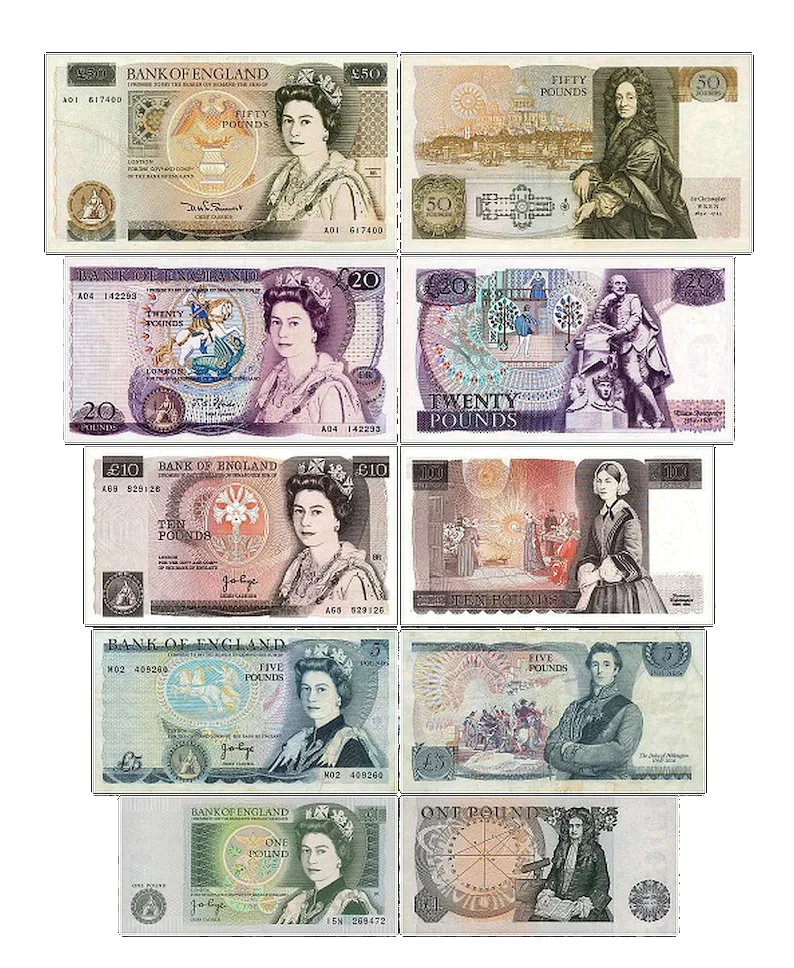

征服者威廉或征服者纪尧姆(英文:William the Conqueror,法文:Guillaume le Conquérant,拉丁文:Willielmus Rex Anglorum,1020年代约1028年-1087年9月9日),亦称英格兰的威廉一世(英文:William I of England,法文:Guillaume Ier d’Angleterre)或诺曼底的纪尧姆二世(英文:William II of Normandy,法文:Guillaume II de Normandie),诺曼底公爵,1066年起成為英格兰的第一位诺曼人国王,直至1087年9月9日逝世。因其非婚姻出生,他的敌人称之为“杂种纪尧姆”(William the Bastard,法语:Guillaume le Bâtard)。
1066年,纪尧姆要求成为英格兰国王。他率领一支由诺曼人、布列塔尼人、佛兰芒人和法国人(来自巴黎和法兰西岛)组成的军队入侵英格兰,在黑斯廷斯战役中战胜了哈罗德二世的英国军队,随后镇压了英国人的反抗,这就是著名的诺曼征服,他也得名“征服者威廉”。
他将诺曼-法兰西文化带到英格兰,对后来的英格兰中世纪时期产生了影响。影响包括统治者的改变,对英语的改变,社会和教会的上层等级的变化,并且采用了一些大陆上教会改革的观点。影响的详细情况和程度多年来被学者争论。
Wilhelm der Eroberer (englisch William the Conqueror, französisch Guillaume le Conquérant; vor der Eroberung Englands Wilhelm der Bastard genannt; * 1027/28 in Falaise, Normandie, Frankreich; † 9. September 1087 im Kloster Saint-Gervais bei Rouen, Frankreich) war ab 1035 als Wilhelm II. Herzog der Normandie und regierte ab 1066 als Wilhelm I. das Königreich England.
Der romanisierte Normanne war der letzte Herrscher, der Großbritannien von außen erobern konnte. Das von ihm erlassene Grundbuch Domesday Book dient teilweise selbst heute noch als Rechtsquelle, vor allem ist es eine überragende Quelle für die Wirtschafts- und Sozialgeschichte.

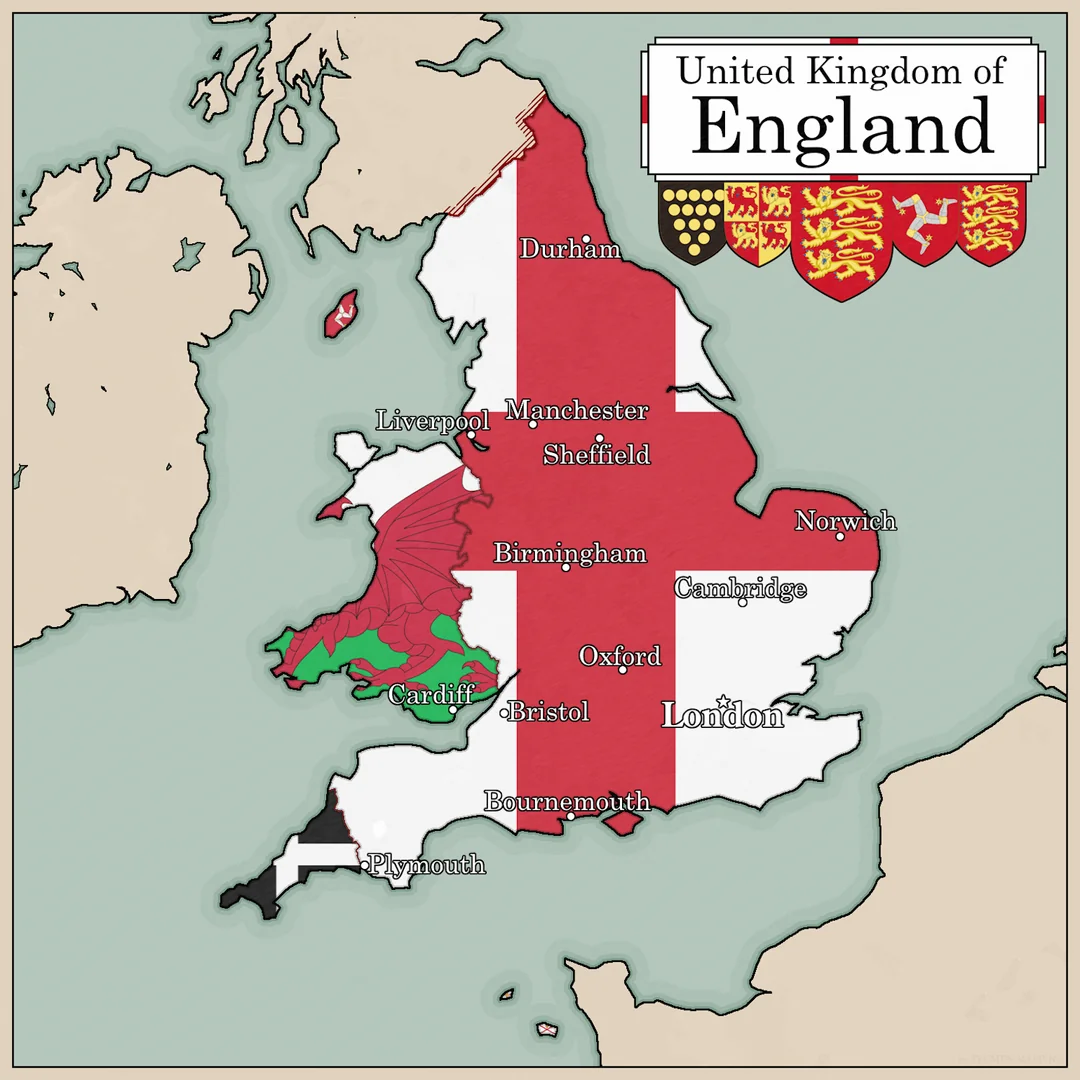
英格兰王国(英语:Kingdom of England;927年—1707年5月1日)是西欧历史上的一个国家,地处大不列颠岛南部,包含现今的英格兰与威尔士。王室的首要居所原本是汉普郡的温切斯特,但伦敦和格洛斯特被授予同样的地位——特别是伦敦,从1066年开始已经成为英格兰王国以及1707年联合法令生效以来的英国事实上的首都。
Das Königreich England bestand vom Zusammenbruch der Heptarchie im Frühmittelalter bis zum Jahr 1707. Sein Nachfolger wurde das durch den Zusammenschluss der Königreiche von England und Schottland entstandene Königreich Großbritannien.
 England
England
 Premier League
Premier League
 Premier League 2015/16
Premier League 2015/16
 Premier League 2016/17
Premier League 2016/17
 Premier League 2017/18
Premier League 2017/18
 Premier League 2018/19
Premier League 2018/19

 Sport
Sport
 (F)International soccer leagues
(F)International soccer leagues
 United Kingdom
United Kingdom

 Important International Organizations
Important International Organizations
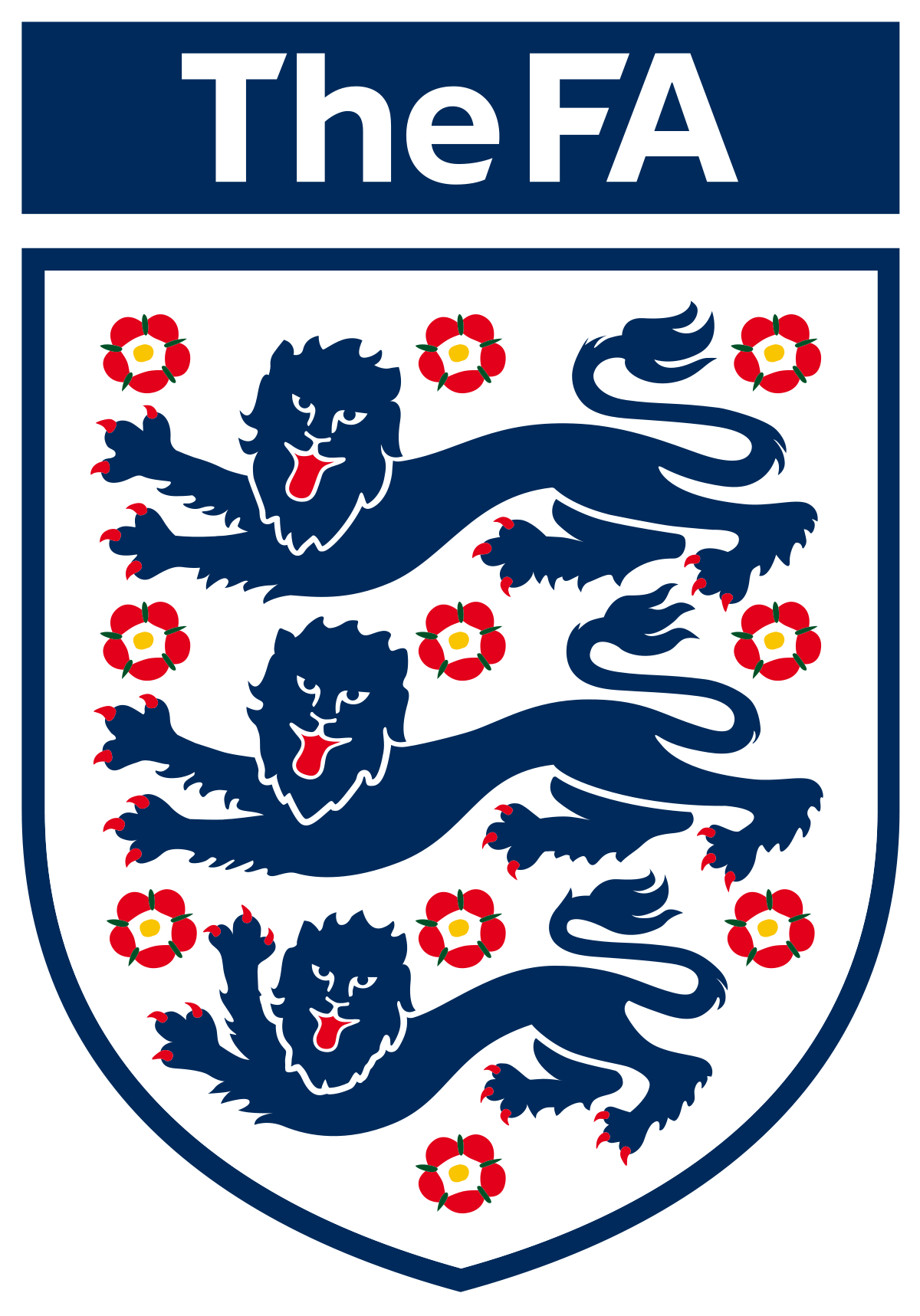
Die Football Association (kurz (The) FA) ist der höchstrangige Fußballverband in England sowie den Kronbesitzungen Jersey, Guernsey und der Isle of Man.
Die FA wurde am 26. Oktober 1863 als erster Fußballverband der Welt gegründet. Sie war maßgeblich daran beteiligt, die Regeln des modernen Fußballspiels zu formulieren, und nimmt einen besonderen Platz in der Geschichte des Sports ein. Heute ist sie Mitglied der UEFA, der FIFA und ist mit einem ständigen Sitz im International Football Association Board (IFAB) vertreten.
Alle professionellen Fußballklubs Englands müssen Mitglieder der Football Association sein, um an deren Wettbewerben teilzunehmen. Die FA ist verantwortlich für das Management der englischen Männer- und Frauen-Nationalteams, die Organisation des FA Cups – des größten und angesehensten Pokalwettbewerbs des Landes – und ist außerdem der Dachverband der English Football League (bestehend aus Championship, League One und League Two). Die Premier League ist dagegen selbstverwaltet.
Die FA spielt eine große Rolle in der Entwicklung des englischen Fußballs an der Basis, dennoch unterstützt sie weiterhin die Amateurspiele und organisiert das nationale Ligasystem.
英格兰足球总会,正确名称为足球总会(英语:The Football Association,简称:The FA)是一个管理英格兰境内(包括其他海外属地:泽西岛、根息岛及马恩岛)有关足球事务的法定机构,于1863年正式成立。
英格兰足球总会负责英格兰境内一切的足球事务,是世界上最早成立的足球官方总会,亦是西欧第一家足球协会,因此英文名称中只称为足球协会(The Football Association),而没有任何表示地区的字眼。具体工作包括设立比赛规条、管理英格兰国家足球代表队、改革足球联赛、仲裁英格兰一切俱乐部纷争等等。英格兰足球总会同时亦是欧洲足联和国际足联的会员。
ザ・フットボール・アソシエーション(英: The Football Association)は、イングランドのサッカーを統括する国内競技連盟。略称はThe FA(ジ・エフエー)である。1863年に創立された世界最古のサッカー協会であるため、英語の正式名称は国名を表す修飾語を用いず定冠詞 'The' のみを伴う形で表記される。なお、日本語の報道ではイングランドサッカー協会との呼称が定着している他、サッカー専門の雑誌などでは 'The FA' から定冠詞を省いたFA等の呼び名でも表記される。
ザ・フットボール・アソシエーションは近代サッカーのルールの策定において大きな役割を果たしたことで知られている。イングランドに存在する全てのサッカークラブが加盟する団体として、イングランドのプレミアリーグおよび国内のカップ戦を主宰している。また国内の国際サッカー連盟 (FIFA) と欧州サッカー連盟 (UEFA)を構成する加盟団体の一つであり、ルールの制定に携わっている国際サッカー評議会 (IFAB) の構成団体でもある。
The Football Association (also known as The FA) is the governing body of association football in England and the Crown dependencies of Jersey, Guernsey, and the Isle of Man. Formed in 1863, it is the oldest football association in the world and is responsible for overseeing all aspects of the amateur and professional game in its territory.
The FA sanctions all competitive football matches within its remit at national level, and indirectly at local level through the county football associations. It runs numerous competitions, the most famous of which is the FA Cup. It is also responsible for appointing the management of the men's, women's, and youth national football teams.
The FA is a member of both UEFA and FIFA and holds a permanent seat on the International Football Association Board (IFAB) which is responsible for the Laws of the Game. As the first football association, it does not use the national name "English" in its title. The FA is based at Wembley Stadium, London. The FA is a member of the British Olympic Association, meaning that the FA has control over the men's and women's Great Britain Olympic football team.[1]
All of England's professional football teams are members of the Football Association. Although it does not run the day-to-day operations of the Premier League, it has veto power over the appointment of the League Chairman and Chief Executive and over any changes to league rules.[2] The English Football League, made up of the three fully professional divisions below the Premier League, is self-governing, subject to the FA's sanctions.
La Fédération anglaise de football en anglais : The Football Association (FA) est une association regroupant les clubs de football d'Angleterre et organisant les compétitions nationales (championnat amateurs, professionnels et Coupe d'Angleterre) et les matchs internationaux de la sélection d'Angleterre.
Elle organise également les compétitions des dépendances de la Couronne d'Angleterre, sur l'Île de Man, à Guernesey et à Jersey. Formée en 1863, elle est la plus ancienne association nationale de football au Monde et joua un rôle important dans la mise en place des règles de son sport. Son siège est situé à Londres, à Wembley, après avoir été à Soho Square avant 2009.
Bien que la plus haute division du football professionnel (la Premier League) soit autonome, la Fédération anglaise a son mot à dire sur la nomination des responsables de cette ligue et ses règles. En cas de problèmes financiers, la fédération a le droit de retirer des points et de restreindre le nombre de transferts aux équipes fautives. Au niveau local, 43 « districts » (appelés County Football Association (en)) chapeautés par la fédération sont chargés de l'organisation des compétitions.
La FA finance actuellement la construction d'un Centre national du football, le St George's Park National Football Centre (en), qui reprend le modèle du Centre technique national Fernand-Sastre en France.
La Football Association (The FA) è la federazione calcistica inglese. Regolamenta e gestisce l'attività calcistica d'Inghilterra e delle dipendenze della Corona di Jersey, Guernsey e Man.
Alla Football Association è demandata anche la gestione delle selezioni nazionali che rappresentano l'Inghilterra nei vari tornei internazionali.
Essa è la più antica federazione calcistica del mondo, essendo stata fondata il 26 ottobre 1863.
Tutti i club professionistici inglesi debbono essere membri della FA, che ha la responsabilità della nomina dei tecnici delle squadre nazionali maschili e femminili dell'Inghilterra e dello staff dirigenziale della Premier League. Nonostante i campionati di livello inferiore alla Premier League si disputino sempre sotto l'egida della FA, essa non ha poteri di nomina all'interno della Lega Calcio inglese, la Football League (organizzatrice del Football League Championship, Football League One e Football League Two, rispettivamente i campionati di seconda, terza e quarta divisione nazionale).
La FA svolge un ruolo di primaria importanza nello sviluppo del calcio inglese sin dai livelli più bassi, grazie al continuo supporto del gioco a livello amatoriale, e all'organizzazione del National League System, il sistema di campionati a promozione e retrocessione il cui gradino più alto è, appunto, la Premier League.
La Asociación del Fútbol (The Football Association en inglés) es el máximo organismo del fútbol en Inglaterra y las dependencias de la Isla de Jersey, Guernsey y la Isla de Man. Fue establecida en 26 de octubre de 1863,1 y es la asociación de fútbol más antigua del mundo. Dirige a todos los clubes profesionales de Inglaterra. La FA fue determinante en la formulación de las reglas del fútbol moderno y ocupa un lugar especial en la historia. Es miembro de la UEFA y de la FIFA, y ocupa un asiento permanente en el International Football Association Board (IFAB).
Al ser la primera federación nacional de fútbol de la historia, su influencia fue muy grande durante el primer periodo de expansión de este deporte, hasta el punto que a principios del siglo XX varias federaciones extranjeras, incluidas algunas sudamericanas, también fueron miembros de la FA. A diferencia de las demás asociaciones nacionales, el nombre oficial de la FA no contiene el nombre de su país, ni tampoco el de su gentilicio (England o English).
Todos los clubes de fútbol profesional de Inglaterra deben ser miembros de la FA. La FA es responsable de las selecciones nacionales (masculina y femenina) de Inglaterra y es el órgano director de la Premier League. Cabe destacar su papel de apoyo al fútbol amateur, organizando el Sistema Nacional de Ligas.
Футбо́льная ассоциа́ция (англ. The Football Association, FA) — организация, осуществляющая контроль и управление футболом в Англии и коронных владениях Гернси, Джерси и Остров Мэн. Была основана в 1863 году и является старейшей футбольной ассоциацией в мире. Штаб-квартира Футбольной ассоциации располагается на стадионе «Уэмбли» в Лондоне.

盎格鲁-撒克逊英格兰(英語:Anglo-Saxon England)是指从5世纪不列颠罗马统治的结束和盎格鲁-撒克逊诸王国的建立,到1066年诺曼征服的一段英格兰历史时期。盎格鲁-撒克逊人是对在5世纪、6世纪期间迁居不列颠群岛的日耳曼部落的总称,包括盎格鲁人、撒克逊人、弗里斯兰人和朱特人。
9世纪前的盎格鲁-撒克逊英格兰,由七个王国主导:诺森布里亚、麦西亚、东盎格利亚、埃塞克斯、肯特、萨塞克斯和威塞克斯。这些蛮族王国在7世纪完成了基督教化,而原有宗教的强势地位随着655年麦西亚国王彭达的去世而终结。
面对维京人入侵的威胁,阿尔弗雷德领导下的威塞克斯在9世纪的英格兰取得优势地位。10世纪时,各割据王国已经统一于英格兰王国,与在英格兰北部和东米德兰兹地区建立的维京人王国(即丹麦法区)相抗衡。1013年—1042年,英格兰王国被纳入丹麦王朝统治下,后威塞克斯王朝复辟。1066年最后一位无争议的盎格鲁-撒克逊国王哈罗德二世败于黑斯廷斯战役,同时标志着盎格鲁-撒克逊英格兰历史的结束。
Anglo-Saxon England was early medieval England, existing from the 5th to the 11th centuries from the end of Roman Britain until the Norman conquest in 1066. It consisted of various Anglo-Saxon kingdoms until 927 when it was united as the Kingdom of England by King Æthelstan (r. 927–939). It became part of the short-lived North Sea Empire of Cnut the Great, a personal union between England, Denmark and Norway in the 11th century.
The Anglo-Saxons were the members of Germanic-speaking groups who migrated to the southern half of the island of Great Britain from nearby northwestern Europe. Anglo-Saxon history thus begins during the period of sub-Roman Britain following the end of Roman control, and traces the establishment of Anglo-Saxon kingdoms in the 5th and 6th centuries (conventionally identified as seven main kingdoms: Northumbria, Mercia, East Anglia, Essex, Kent, Sussex, and Wessex), their Christianisation during the 7th century, the threat of Viking invasions and Danish settlers, the gradual unification of England under the Wessex hegemony during the 9th and 10th centuries, and ending with the Norman conquest of England by William the Conqueror in 1066.
Anglo-Saxon identity survived beyond the Norman conquest,[1] came to be known as Englishry under Norman rule, and through social and cultural integration with Celts, Danes and Normans became the modern English people.
L’histoire de l'Angleterre anglo-saxonne s'étend de l'arrivée des peuples anglo-saxons dans l'ancienne province romaine de Bretagne jusqu'à la conquête normande de l'Angleterre. Elle correspond à l'histoire de l'Angleterre au haut Moyen Âge, de la fin du IVe siècle au milieu du XIe siècle.
Après les Ve et VIe siècles, généralement qualifiés d'« âge sombre », de grands royaumes anglo-saxons commencent à émerger à partir du VIe siècle et supplantent progressivement les régions occupées par les Bretons. Le plus septentrional de ces royaumes, la Northumbrie des rois Edwin (616-633), Oswald (634-642) et Oswiu (642-670), domine l'Angleterre au VIIe siècle, mais son expansion connaît un coup d'arrêt avec la défaite de Nechtansmere contre les Pictes en 685. Au VIIIe siècle, c'est la Mercie, royaume centré sur les Midlands, qui occupe une position hégémonique sous les règnes d'Æthelbald (716-757), Offa (757-796) et Cenwulf (796-821).
L'arrivée des Vikings à la fin du VIIIe siècle bouleverse la Grande-Bretagne. Les côtes de l'île sont pillées par les flottes danoises et norvégiennes avant qu'un véritable processus de colonisation ne débute dans le nord et l'est de l'Angleterre, une région appelée par la suite Danelaw. La résistance victorieuse du roi du Wessex Alfred le Grand (871-899) prépare l'unification de l'Angleterre sous l'autorité de la maison de Wessex, un processus poursuivi par son fils Édouard l'Ancien (899-924) et achevé par son petit-fils Æthelstan (924-939), souvent considéré comme le premier souverain du royaume d'Angleterre.
Les raids vikings reprennent en force à la fin du Xe siècle et aboutissent à la conquête de l'Angleterre par le Danois Knut le Grand en 1016. Son empire, qui comprend également le Danemark et la Norvège, s'effondre à sa mort, en 1035, et la maison de Wessex est rétablie sur le trône en la personne d'Édouard le Confesseur. La mort de celui-ci sans descendance, le 4 janvier 1066, sert de prétexte à la conquête normande de l'Angleterre par Guillaume le Conquérant.
La historia de la Inglaterra anglosajona cubre el periodo de la Alta Edad Media inglesa, desde el fin de la Britania romana y el establecimiento de los reinos anglosajones en el siglo V hasta la conquista normanda en 1066. Los siglos V y VI son conocidos arqueológicamente como la Britania posromana, o en historia popular como la «Edad Oscura»; desde el siglo VI, se desarrollan reinos más extensos que se denominan conjuntamente «heptarquía». La llegada de los vikingos a finales del siglo VIII trajo consigo cambios a Britania. Las relaciones con el continente eran importantes cuando desapareció la Inglaterra anglosajona, momento que se asocia tradicionalmente con la conquista normanda.
Англосаксонский период в истории Великобритании (V-XI вв.) начинается с колонизации Британских островов отдельными группами германских племен — в основном англов, саксов и ютов — и создания ими так называемых англосаксонских королевств. Его верхней границей считается Нормандское завоевание 1066 года.





 History
History
 N 2000 - 2100 AD
N 2000 - 2100 AD


 IT-Times
IT-Times
 CAD/CAE/CAM/EDA/PDM/PLM
CAD/CAE/CAM/EDA/PDM/PLM


 IT-Times
IT-Times
 CNC
CNC


 IT-Times
IT-Times
 CRM/EAM/ERP/SRM/SCM/HCM/QM/XM/WFM
CRM/EAM/ERP/SRM/SCM/HCM/QM/XM/WFM


 IT-Times
IT-Times
 Industrial Robot
Industrial Robot


 IT-Times
IT-Times
 PLC/DCS/FCS/SCADA/MES
PLC/DCS/FCS/SCADA/MES


 IT-Times
IT-Times
 Artificial Intelligence
Artificial Intelligence
 United Kingdom
United Kingdom

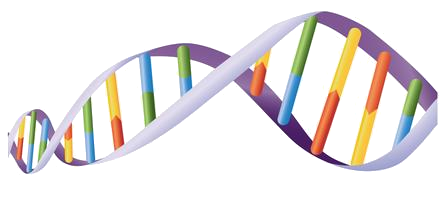 Science and technology
Science and technology

 Renaissance architecture
Renaissance architecture
 Deutsche Renaissance
Deutsche Renaissance
 Renaissance architecture
Renaissance architecture
 Englische Renaissance
Englische Renaissance
 Renaissance architecture
Renaissance architecture
 Französische Renaissance
Französische Renaissance

 History
History
 M 1500 - 2000 AD
M 1500 - 2000 AD
 United Kingdom
United Kingdom
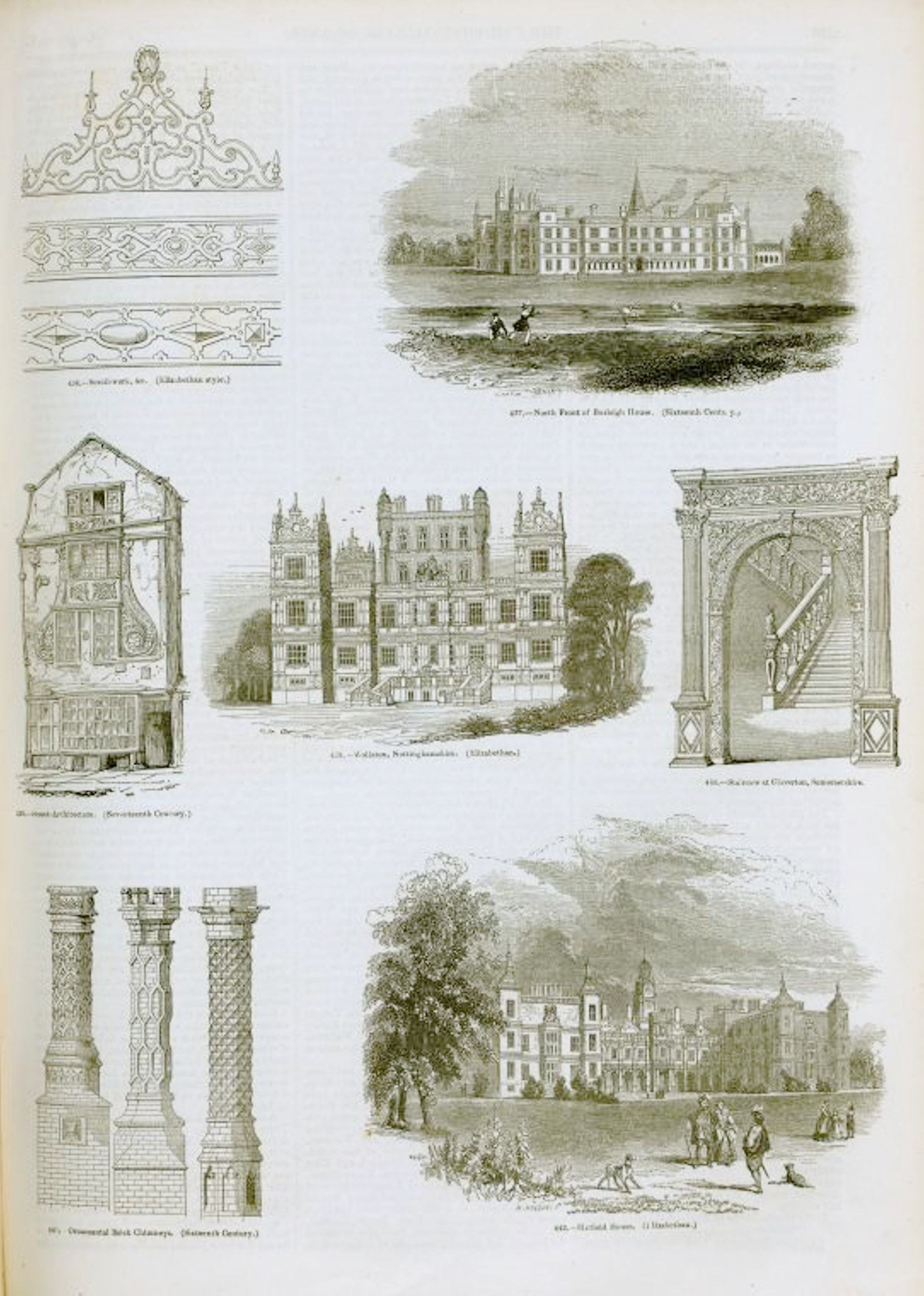

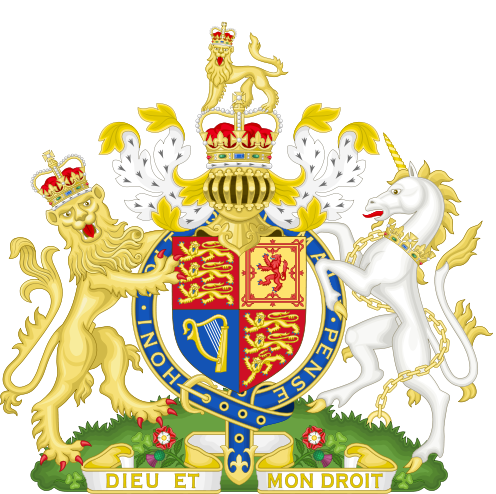

教宗英诺森三世(拉丁语:Innocentius PP. III;约1161年—1216年7月16日)本名塞尼伯爵罗塔里奥(Lotario dei Conti di Segni)。他于1198年1月8日当选教宗,同年2月22日即位至1216年7月16日为止。[1]他在位的时候,中世纪的圣座权威与影响到达登峰造极的状态。他声称教宗对于欧洲所有国王来说,拥有至高无上的地位。他即可毫不犹豫地开除君王的教籍。特别号召十字军东及召开四次拉特兰会议 ,成功让当时教会权势走至巅峰。同时英诺森三世完成增加教宗权力的最后工作,在其工作及改革以后,圣座的结构坚固不摇,直到十三世纪的尽头。
英诺森是第一个使用“基督的代表”(Vicar of Christ)这个名称,认为教宗这个职物有“半神”,处于人与神之间;在神之下,在人之上的说法。依诺增也自称麦基洗德,是祭司身份的君王。
Innozenz III. (geboren als Lotario dei Conti di Segni, eingedeutscht Lothar aus dem Hause der Grafen von Segni; * 22. Februar 1161 auf Kastell Gavignano; † 16. Juli 1216 bei Perugia) war von 1198 bis 1216 Papst der römisch-katholischen Kirche. Er gilt als einer der bedeutendsten Päpste des Mittelalters.
 Financial
Financial
 Historical coins, banknotes
Historical coins, banknotes
 Architecture
Architecture



 Military, defense and equipment
Military, defense and equipment
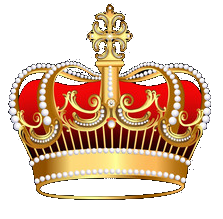 Royalty
Royalty